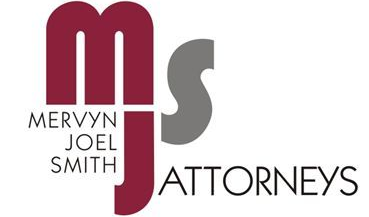South Africa’s property market’s resilience in the face of the global Covid-19 pandemic continues, with industry experts expecting rates to remain unchanged for the remainder of the year, benefiting low-value homeowners looking to upgrade. However, analysis shows the historically low-interest rate’s impact on the market is starting to cool.
Annual house price inflation was recorded at 4,0% at the end of February 2021, signifying yet another positive increase from the previous month. This is according to the Lightstone Property Indices for March, with the “optimism is evident at provincial level and the different value bands with the exception of the low-value segment.
‘Comfortable upgrade for Low-value homeowners’
“The low-value market has seen lesser demand due to the historically low-interest rate that has enabled both the immediate participation in higher-value market for new homeowners and a comfortable upgrade for Low-value homeowners.”
The Rode 2021 report also indicates that house prices in South Africa “remain buoyant, with nominal price growth reaching about 4% in February 2021 compared to February 2020 due to the interest rate bonanza”. This implies that so far in 2021 house prices have surprisingly outpaced consumer inflation, which averaged at 3% in the first two months.
“This is very encouraging as house prices have been declining in real terms (after deducting consumer inflation) since 2016. However, there are early signs that the market is starting to cool, with prices essentially trending sideways since December on a month-on-month basis.”
“This could be because the interest rate impact is starting to fade, while unemployment and salary cuts start to play more of a role in curbing demand growth. After all, we know from rigorous research that the growth in house prices is positively correlated with the economy.
‘Highest volume of mortgage approvals in South Africa’
This brings us to the crucial question: when will short-term interest rates be normalized again?
Dr Andrew Golding, chief executive of the Pam Golding Property group says, “Economists in the main argued that interest rates are currently at the correct level given the prevailing economic environment. From a residential property perspective, last year’s aggressive rate cuts have fuelled home buying to a large degree, with 2020 surprising many by showing robust home-buying activity. In fact, according to FNB, 2020 registered the highest volume of mortgage approvals in South Africa in more than a decade.
“While the economy is expected to rebound this year, the robust growth rate forecast will largely be the result of comparisons to last year’s exceptionally weak levels. Furthermore, President Biden’s massive US$1.9 trillion stimulus package, coupled with the successful roll-out of the vaccines in several countries, looks set to boost global economic growth prospects, raising concerns potentially around renewed international inflationary pressures and ultimately, higher global interest rates.”
Dr Golding says as a consequence, South Africa can ill afford to continue cutting already historically low interest rates at a time when investors are anticipating that global interest rates may soon be rising.
‘Rates expected to remain unchanged until 2022’
“However, views on when the SA Reserve Bank will ultimately begin to raise local interest rates are varied, with many suggesting that they will remain unchanged until next year (2022), while some believe rates may possibly begin rising towards the end of this year (2021). One thing we do know is that in unusually uncertain times such as these, forecasting is far from an exact science.
“In fact, despite the uncertainties surrounding the pandemic, the market for residential property has so far proven to be one of the country’s more resilient sectors, experiencing an earlier than expected rebound with momentum continuing in 2021, underpinned by the 50-year low interest rates. Combined with generally more realistic pricing, a ripple effect is still filtering through the market, placing upward pressure on demand through the various price bands.
‘Western Cape sees weakest recovery’
“Currently, and according to the Pam Golding Residential Property Index, South Africa’s house price inflation continues to rebound, rising from a low of 2.5% in April 2019 to 4.1% in February 2021 and promisingly, the recovery in prices is showing no sign of losing momentum. KwaZulu-Natal still leads the recovery with +5.4% in February 2021, followed by Gauteng (+4.8%) and the Western Cape (+4.7%). Noteworthy especially for first-time buyers, and according to the Pam Golding Residential Property Index, lower-end prices (<R1 million) have been on an upward trend since mid-2020, reaching 6.8% from year-earlier levels in February 2021.
“Interestingly, while growth in freehold prices outperformed relative to sectional title units last year – perhaps influenced by the desire by many to relocate to more spacious properties as a result of the lockdown restrictions, the gap is now rapidly narrowing as growth in sectional title prices accelerates.”
Article courtesy of Lexis Digest and property24
